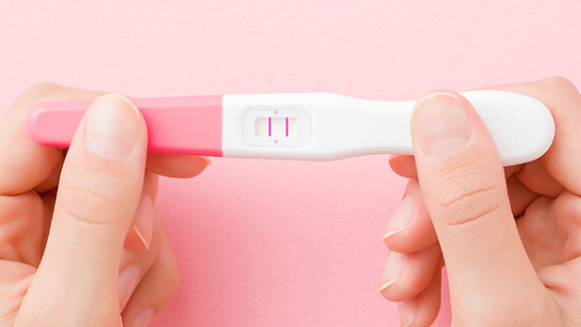If you’re pregnant and experiencing heartburn or acid reflux, you’re not alone. In fact, it’s estimated that up to 80% of pregnant women experience this uncomfortable symptom at some point during their pregnancy. While it can be frustrating, there are plenty of home remedies for acid reflux during pregnancy that can help you find relief. In this article, we’ll explore the causes of acid reflux during pregnancy, whether it affects the baby, and what you can do to prevent and treat it.
Home Remedies for Acid Reflux during Pregnancy
Ginger
Ginger is a natural anti-inflammatory and can help soothe the digestive system. It is also known for its ability to reduce nausea, which makes it an excellent remedy for pregnant women. Here are some ways you can use ginger to ease acid reflux during pregnancy:
- Sip on ginger tea throughout the day.
- Grate fresh ginger root and add it to your meals.
- Chew on ginger candies or ginger chews.
Apple Cider Vinegar
While it may seem counterintuitive to consume vinegar to alleviate acid reflux, apple cider vinegar has been shown to be effective in reducing symptoms. Apple cider vinegar helps balance the pH levels in the stomach, which can help prevent acid reflux. Here’s how you can use apple cider vinegar:
- Mix one tablespoon of apple cider vinegar with a glass of water and drink it before meals.
- Add apple cider vinegar to your salad dressings and other meals.
Almonds
Almonds are a great source of healthy fats and protein, and they can also help neutralize stomach acid. Eating a handful of almonds after meals can help reduce acid reflux symptoms.
Slippery Elm
Slippery elm is an herb that has been used for centuries to treat digestive issues. It is known for its ability to soothe and coat the digestive tract, which can help reduce acid reflux symptoms. Here’s how you can use slippery elm:
- Mix slippery elm powder with water to create a thick paste. Drink it after meals to soothe the digestive tract.
- Take slippery elm capsules before meals.
Papaya
Papaya contains enzymes that aid in digestion and can help reduce acid reflux symptoms. Eating ripe papaya after meals can help prevent acid reflux.
Pregnancy and Acid Reflux: Why It Happens
Acid reflux is a common condition that occurs when the muscle at the end of the esophagus (the lower esophageal sphincter, or LES) doesn’t close properly, allowing stomach acid to flow back up into the esophagus. This can cause a burning sensation in the chest, throat, and mouth, as well as other uncomfortable symptoms like bloating, belching, and nausea.
During pregnancy, acid reflux can be especially common due to a number of factors. Here are some of the main reasons why it happens:
Read more: Pregnancy Heartburn? 7 Ways to Get Relief
Hormonal Changes
One of the biggest culprits behind acid reflux during pregnancy is hormonal changes. When you’re pregnant, your body produces higher levels of the hormone progesterone, which can relax the muscles in the LES and make it more likely for stomach acid to flow back up into the esophagus.
LES
Another factor that can contribute to acid reflux during pregnancy is pressure on the LES. As your baby grows and your uterus expands, it can push up against your stomach and diaphragm, putting extra pressure on the LES and making it more likely to open.
Stomach Pressure
In addition to pressure on the LES, the growing uterus can also put pressure on the stomach itself, which can cause stomach acid to be forced back up into the esophagus.
What Causes Acid Reflux During Pregnancy?
Now that we know why acid reflux is more common during pregnancy, let’s take a closer look at some of the specific factors that can contribute to it.
Hormonal Changes
As we mentioned earlier, hormonal changes are one of the primary causes of acid reflux during pregnancy. The increased levels of progesterone in your body can relax the LES and make it more likely for stomach acid to flow back up into the esophagus.
LES Dysfunction
In some cases, acid reflux during pregnancy can be caused by dysfunction in the LES itself. If the muscle is weak or doesn’t close properly, stomach acid can easily flow back up into the esophagus.
Stomach Pressure
As we mentioned earlier, pressure on the stomach can also be a contributing factor to acid reflux during pregnancy. When the uterus expands and pushes against the stomach, it can cause acid to be forced back up into the esophagus.
Common Is Acid Reflux During Pregnancy?
Acid reflux is a common symptom during pregnancy, with up to 80% of pregnant women experiencing it at some point. However, the severity and frequency of symptoms can vary from person to person.
Does Acid Reflux Affect the Baby?
Fortunately, acid reflux during pregnancy is usually a harmless symptom that doesn’t affect the baby. However, in rare cases, severe or chronic acid reflux can lead to complications like esophageal damage or malnutrition.
Can You Take Antacids During Pregnancy?
If you’re experiencing acid reflux during pregnancy, you may be wondering if it’s safe to take antacids. The good news is that most antacids are considered safe for pregnant women, but it’s always a good idea to check with your doctor first.
FAQs
Q: Is it safe to use home remedies for acid reflux during pregnancy?
A: Yes, home remedies for acid reflux during pregnancy are generally safe. However, it’s always a good idea to talk to your healthcare provider before trying any new remedies.
Q: What can I do to prevent acid reflux during pregnancy?
A: To prevent acid reflux during pregnancy, try eating smaller, more frequent meals, avoid lying down immediately after eating, and avoid trigger foods such as spicy or fatty foods.
Q: Are there any foods that can help reduce acid reflux during pregnancy?
A: Yes, foods such as oatmeal, bananas, and green vegetables can help reduce acid reflux symptoms.
Acid reflux can be a common and uncomfortable symptom during pregnancy, but there are many natural remedies available that can help provide relief. Ginger, apple cider vinegar, almonds, slippery elm, and papaya are all excellent home remedies for acid reflux during pregnancy. Remember to always consult with your healthcare provider before trying any new remedies. With the right remedies and lifestyle changes, you can find relief from acid reflux and enjoy your pregnancy to the fullest.





